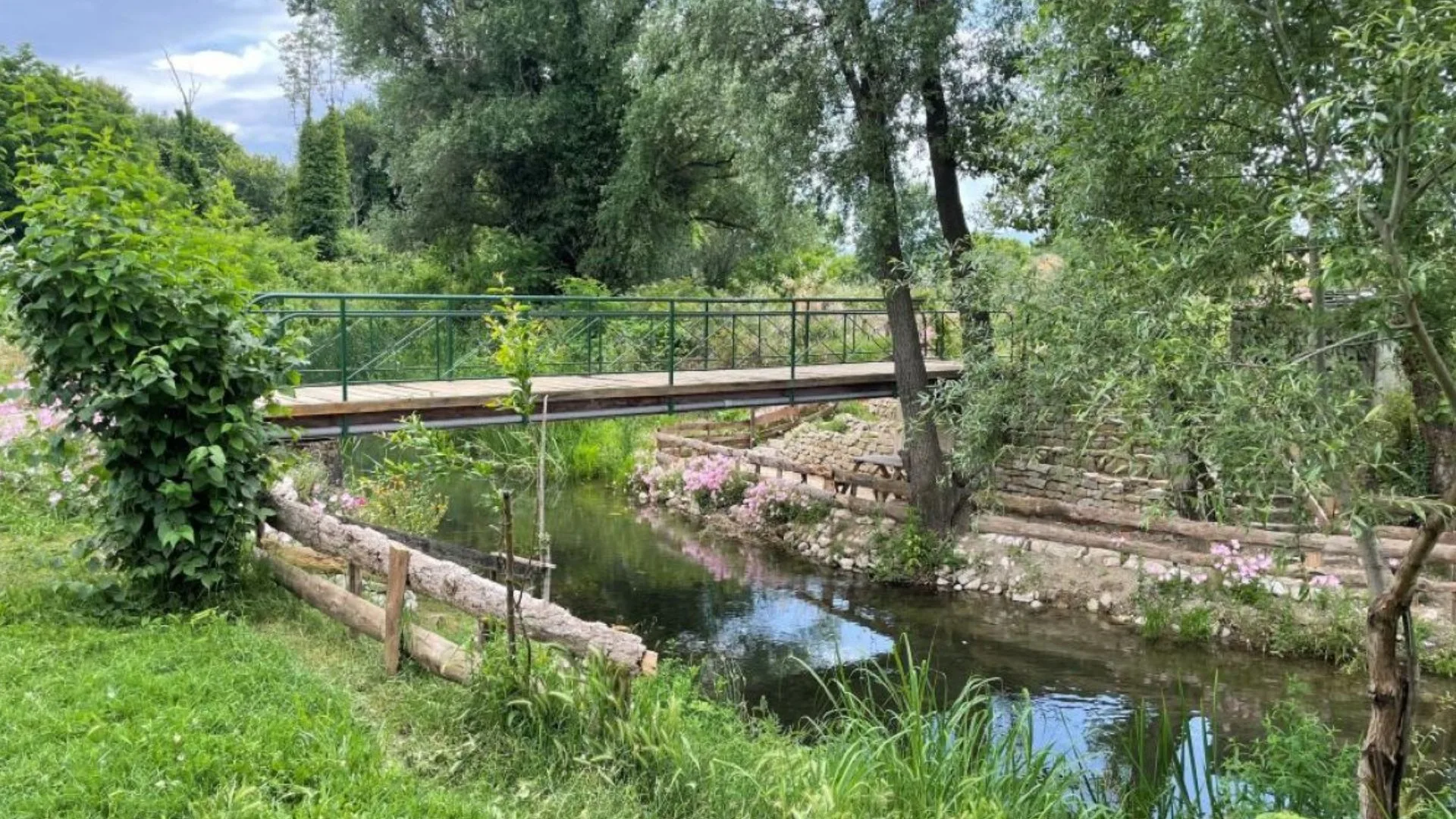Greece’s first “sponge park” has taken shape in Trikala, Thessaly, offering a practical model for climate resilience rooted in nature, according to tovima.com. Located along the Agiamoniotis River, the two-hectare site transforms a section of the riverfront into a living lab of environmental solutions.
This innovative park is part of a wider European initiative aimed at demonstrating how nature-based interventions can outperform technology alone in addressing climate challenges.
The core idea is simple yet powerful: hold water where it falls, reduce surface runoff, recharge groundwater, and protect the soil-mimicking the behavior of healthy ecosystems like forests and wetlands.
To achieve this, the park employs a blend of tested techniques, including buffer zones, water-harvesting systems, retention fences, soil cover strategies, riparian tree planting, and low-till farming. These methods are adapted from successful examples across Europe and tailored to the local environment in Trikala.
Visitors can explore the installations firsthand, gaining insight into how they function and contribute to sustainability. Beyond being a green space, the park acts as a hub for research, education, and public engagement.
With the involvement of 28 European partners, the project aims to show that nature-based solutions are scalable and effective. Sponge infrastructure can help manage flooding, restore degraded river basins, and combat drought and soil erosion-key concerns across the continent.
Trikala’s sponge park is more than a local innovation; it’s a template for how cities across Europe can embrace green infrastructure to build a more resilient future.
Source: tovima.com
